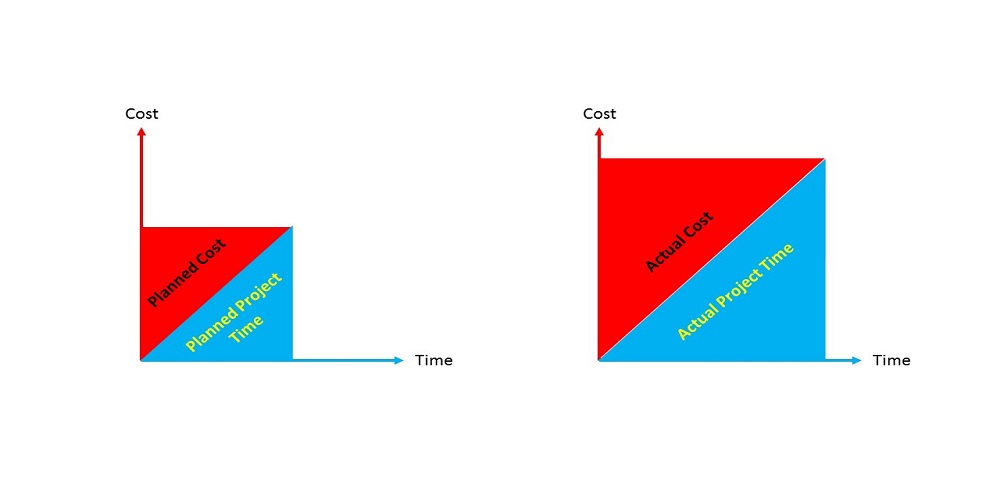Things must not be missed on ERP project Implementation
Business Analyst | 06 March, 2019 (Wednesday)View 1764

Enterprise Resource Planning (ERP) is the most complex & expensive project because it affects many areas of the business. It’s required many changes in business processes & policies, people responsibilities & cultures. If an organization can’t take ownership and manage the project properly, failure is inevitable. At the end, millions of dollars investment will be waste. By following bellow key things, you can ensure success in ERP implementation.
Make a complete implementation project plan
Define full project scope considering all business areas, scenarios, people, processes. Breakdown full project into different sub projects and define their sequences. Identify all weak points, challenges as much as possible at the beginning to avoid surprise later on. Estimate the budget & define the time line of project, identify the required resources. If you cannot define the project scope and cannot make complete project plan, ERP project will fail before it starts.
Align top management with project objectives
Alignment of top management one of the key success factors of ERP project. Without top management support, success is not possible. In this case, explain top management about objectives and make them understand about project goal. Top management must have clear picture about the ERP project mission & vision and benefits. Otherwise, they cannot contribute to the project and cannot help on ERP implementation.
To know how top management is responsilbe for ERP failure: 75% ERP projects fail, only 2 reasons!
Invest on internal project team
The more you know about the ERP software & business processes, the more you will be able to connect your business processes with ERP software. And you will get the success in ERP implementation. Here, you need a smart project team, who have enough business & software knowledge and can integrate any business process with ERP software. Provide training on complete business processes & software knowledge to them. Below people will be in your project team
- Project Manager (Define project scope, budget and timeline and lead the project team)
- Business Analyst (Analyze business process and configure software as per business requirements)
- System Analyst (Develop & customize software)
If you have not a smart internal project team, you need to depend on external software consultants, which is very alarming as thy are very expensive and don’t know your business very well. At the end, you will not get the expected result from ERP software.
Identify all business scenarios, problems & improvements
ERP has three pillars: Standard process, Best practice & information visibility. To implement ERP, standard process & best practice must be established, because ERP system is designed based on business requirements. So, first map the current processes, analyze them, find out the problems and define opportunities. Do gap analysis, design new standard business processes by following best practices which will be integrated with software easily. If you fail to identify the business requirements, you will never be able to integrate business processes with ERP software.
To know about Integration of Business Process with ERP Software: Integration of Business process with Technology
Select right software to satisfy business requirements
Software selection is very crucial & important part in ERP implementation. Selection software is one of the key factors of successful ERP implementation. So, while choosing the ERP software, look for the below 3 characteristics
- Fit
- Configurable
- Open
To get more about ERP software selection: ERP Selection Criteria – Only 3 Features to Look For
Less dependency on external software consultants
ERP project is overbudget due to dependency of external consultants. About 65%-75% cost is consultancy cost in ERP project. External consultants can’t fully understand the client’s business processes, people, culture within very few times as their time is limited for high consultancy cost. Therefore, they fail to configure & customize the ERP software as per business requirements. Where clients do get the expected results from ERP and millions of dollars investment becomes waste.
To get more about Exteranl Software Consultants: External Consultants Vs Internal Consultants
Configure & Customize software as per business needs
ERP implementation success depends on software configuration & customization as per business requirements. If ERP software is not configured & customized as per business needs, it will fail to satisfy business processes and will not provide expected result. In this case, complete software & business knowledge transfer to project team is very important. If they know the software & business knowledge very well, they can easily configure & customize the software as per business processes. And save huge amount of consultancy cost.
Set up right people and define their responsibilities
ERP requires a lot of changes in organization. To implement ERP successfully, you need to set up right people on the right places with proper responsibilities. In this case, you need to fire nay-sayers & traditional people and hire smart people.
Eliminate legacy software
Always try to eliminate the legacy software as much as possible, because it is one of the loop holes of ERP implementation. To eliminate legacy software, transfer previous data in new software very carefully.













